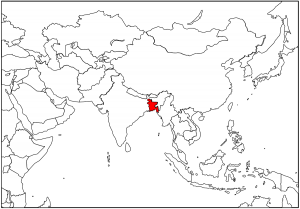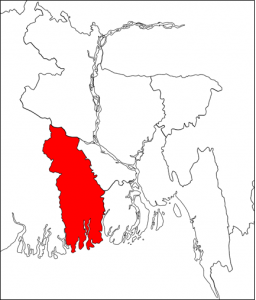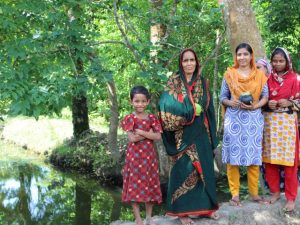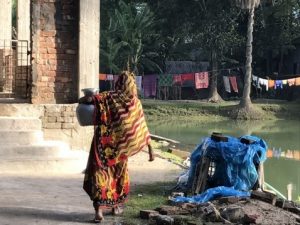Overview
AQUA PROGRAM is a joint project with a jewelry brand “4℃” and Japan Water Forum.
It aims to bring “beauty” and “inspire” the women of developing countries who face serious water and hygiene problems by supporting water issues.
Since it’s establishment in 2008, projects have been carried out in the Republic of Kiribati, Sri Lanka and Bangladesh.
▼4℃ official website “Responsibility to Society”▼
http://yondoshi.co.jp/eng/csr/contribution/
The outlines of the AQUA PROGRAM 2019 are described below.
Outline of the 4℃ AQUA PROGRAM 2019
1) Project Site
Morrelganj Upazila, Bagerhat District, Khulna Division, Bangladesh
 |
 |
| Bangladesh | Khulna Division |
2) Project period
From August 2019 to May 2020
3) Local partner
People for Rainwater Bangladesh
4) Problems
Unlike urban settings, water supply systems are absent in the rural areas of Bangladesh and it is less likely for the areas to have such systems implemented in near future. Therefore, people in the areas where the project is targeting at are relying on ponds and wells for drinking water. However, the quality of such water is not good and securing safe drinking water is hard to attain.
Women and children are the most affected as they are to bear burden to secure drinking water. Every day, they have to go far away from home to get some water from a water pond or well, at the expense of the time for household works and education.
Also, drinking poor-quality water often causes water borne diseases such as diarrhea, which requires additional medical cost for families who are already suffer from poor income in the farming community.
5) Project plan
The project will install a rainwater harvesting system for each family of the targeting village, which enables storing rainwater for drinking purpose. Furthermore, the villagers will be trained to use, maintain and manage the system appropriately so that they can maintain the system for themselves.
Particulars;
– Install rainwater harvesting systems for each of the 50 households in the farming area.
– Conduct trainings regarding the usage and maintenance/management of the rainwater harvesting system.
– Conduct workshops on better living for women of the beneficiary households.
– Conduct knowledge and experience workshop.
– Follow-ups: Status review and guidance on the usage and maintenance/management, as well as quality test of the rainwater stored in the system.
6) Beneficiaries
50 households with around 255 family members
7) Potential Impacts
– People in the rural neighborhood will be able to access safe drinking water by utilizing rainwater.
– Women and children will be freed from the burden to get water from distant sources.
– Expenses of medication and medical treatment for water-borne diseases caused by drinking water of conventional way will be reduced.
 |
 |
|
Women and girls standing at the pondin the target area |
Woman carrying water collected from the pond |
(Reported by Sae Ishihara, Chief Manager and Akie Gunji, Assistant Manager)
